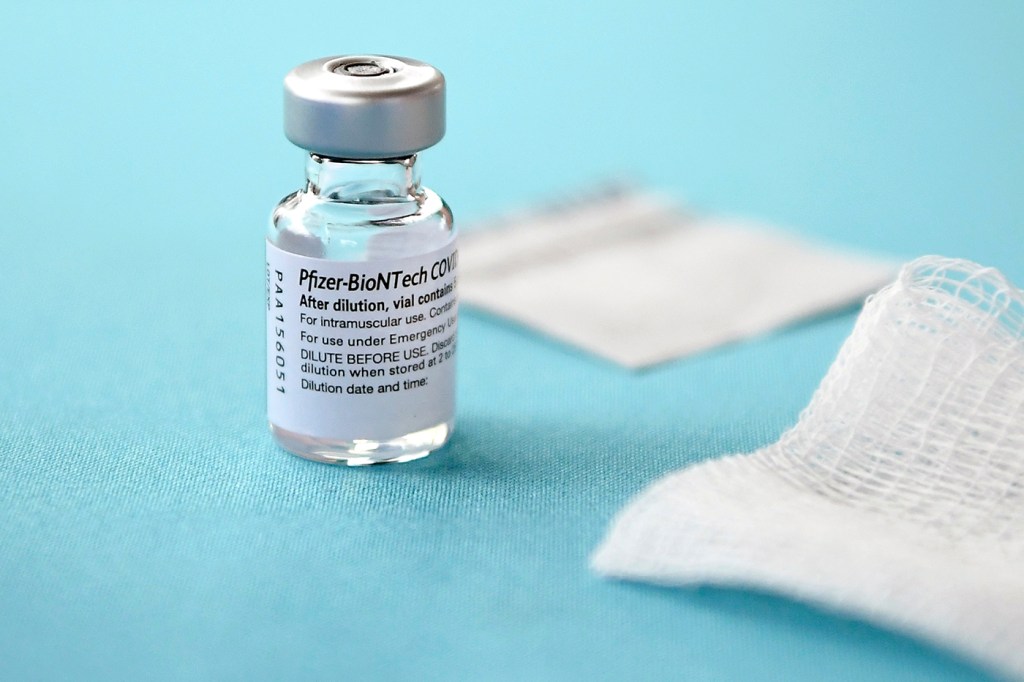Should I be worried about an allergic reaction to the COVID-19 vaccine?

Following two severe allergic reactions to Pfizer’s COVID-19 vaccine on the United Kingdom’s first day of vaccine administration, nurses in the U.K. are being instructed to monitor patients for 15 minutes after receiving the injection for possible adverse side effects.
The added observation time drastically decreases the amount of patients nurses can vaccinate in a day. While allergic reactions to vaccines can be dangerous and sometimes fatal, are they common enough to warrant such a time-consuming response?

Todd Brown, a registered pharmacist and clinical instructor in the department of pharmacy and health systems sciences at Northeastern, says that unless you have a history of allergic reactions to vaccines, you shouldn’t be worried about this response to a COVID-19 vaccine. Photo by Ruby Wallau/Northeastern University
“A very small population of individuals will have allergic reactions to the vaccine,” says Todd Brown, a registered pharmacist and clinical instructor in the department of pharmacy and health systems sciences at Northeastern. “These people should be able to anticipate this response because they will have most likely had allergic reactions to other vaccines too.
“Unless you’ve had an allergic response to vaccines in the past, you shouldn’t be worried about this with the COVID-19 vaccine,” he continues. “We know from the trials that this doesn’t happen in the general population.” The vaccine trials are designed to represent the majority of the population; people who have allergic reactions are outliers.
Allergic reactions aren’t a unique side effect of the COVID-19 vaccine, Brown says. People respond adversely to many vaccines, including the flu vaccine, which is incubated in chicken eggs, for example.
“People who are allergic to eggs sometimes have an allergic reaction to the flu vaccine,” Brown says. “We used to think that if people got hives from the flu vaccine they shouldn’t get it. But that’s not true. In an overwhelming amount of cases, these people are fine.”
Symptoms of allergic reactions include wheezing, hives, and swelling in the face. In most cases, these side effects are unpleasant but harmless, Brown says.
If someone has an allergic reaction to the COVID-19 vaccine, they will most likely have had the same experience with all vaccines, Brown continues. The adverse response is more of a reflection of the individual’s immune system rather than of something inherently dangerous in the vaccine.
“Some people have immune systems that react severely to foreign substances,” he says. “When they get something like a vaccine, it triggers this response no matter which vaccine it is.”
Both people who had allergic reactions to the COVID-19 vaccine in the U.K. have a history of vaccine allergies and were carrying adrenaline autoinjectors with them in anticipation of side effects.
In the U.S., the Centers for Disease Control and Prevention says people with a history of allergic reactions should still receive the COVID-19 vaccine, but they should do so in a medical setting—not in pharmacy clinics where most doses will be administered in the United States—in case of severe complications.
Additionally, there is no data to suggest that having an allergic reaction means a vaccine will be less effective in an individual, Brown says.
For media inquiries, please contact Marirose Sartoretto at m.sartoretto@northeastern.edu or 617-373-5718.





